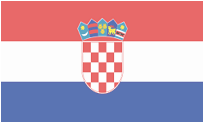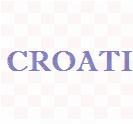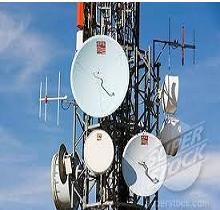There is also Satellite internet available but has declined since ADSL has spread throughout the country. Croatia is also participating in the Trans-Asia-Europe fiber-optic project. The TEL project is two fiber-optic trunk connections with Slovenia and one trunk line from Rijeka to Split and Dubrovnik. They are also entering into a joint fiber-optic project with Germany, Albania and Greece which is called ADRIA 1.
Telecommunications
Croatia's Information Infrastructure consists of 1.866 million main line telephones and 6.362 million mobile telephones which ranks them at 60 and 94. This puts them in the top 100 of all countries in the world for both categories. The mobile operators available in Croatia are T-Mobile Croatia, Vipnet, and Tele2. The main operator for local lines is T-Hrvatski but there is also Optima Telekom, Portus Telekom, Iskon Broadband Telekom, B,net, Amis and Metronet. The local lines are all digital and have been increasing since the mid 90's.
Internet Availability (Stage 4)
The Internet Availability for Croatia is Stage 4 and although the internet has been spreading rapidly over the last 10 years the abailability still depends on where you are and what you are looking for. The Balkans region has the most internet penetration and Rijeka is the only town to offer free wireless throughout but most businesses, hotels and entertainment venues offer the internet in some form for their customers. The internet bandwidth in Croatia is 4,771 Mbps and there are 1,111,000 hosts and 9 ISP providers.
Internet Affordability (Stage 4)
The average price for internet in Croatia is $16.11 per month. With the median monthly salary for Croatian's which is 680 Euros this makes the cost of the internet on a monthly base to be very reasonable. This puts them at a Stage 4 when it comes to the affordability of the internet.
Network Speed and Quality (Stage 3)
The network speed and quality is Croatia is growing more reliable and quicker although the current status is acceptable in most areas. Croatia has 19 Linux web servers and 215 secure internet servers. The network is available in most areas especially the main cities enough to support business needs.
Hardware and Software (Stage 4)
Croatia has both hardware and software available to the country through many venues. These are being provided to Croatian's through retail and wholesale as well as on a local and global scale of companies. Some of the global companies that have a local presence in Croatia include but are not limited to IBM, Computer Systems (CS), and SAP. There are also hundreds of other local companies that supply hardware, software, services and support according to
www.hr to Croatia.
Service and Support (Stage 3)
The service and support in Croatia is Stage 3 because they value their education and provide resources to train their employees. The amount of Croatians going to Universities and Higher Education is increasing and the workforce is more educated when entering their careers. Jobs are filled quicker with skilled employees, employees are ramped up to speed at a faster pace and the tasks are started and completed in a more efficient and effective means.











